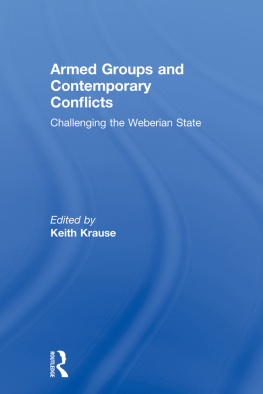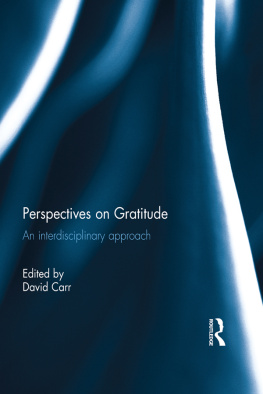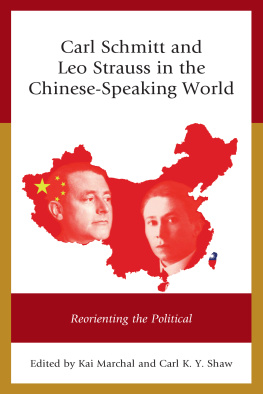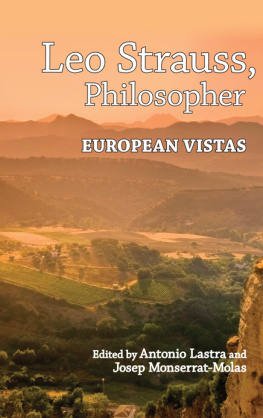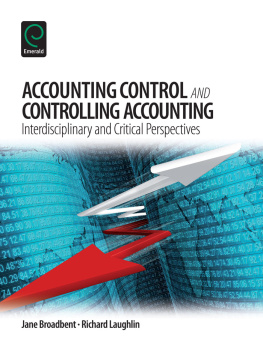War
War: Contemporary Perspectives on Armed Conflicts around the World pre - sents a broad variety of interdisciplinary and social scientific perspectives on the causes, processes, cultural representations, and social consequences of the armed conflicts between and within nations and other politically organ ized communities. This book provides theoretical views of armed conflict and its impact on people and institutions around the world.
Cameron D. Lippard is an Associate Professor of Sociology at Appalachian State University, North Carolina. His teaching interests focus on race and ethnic relations, immigration, sociology of war, and research methods. His primary research agenda examines the social integration of Latino immigrants into the American South, as well as examining how individuals and people use color-blind language to justify racist actions and policies. He also studies issues of postmodern cultural shifts in the United States and abroad concerning the rise of craft beer, legal moon shine, and fair trade coffee. His recent book publications include Building Inequality: Race, Ethnicity, and Latino Immigration in the Atlanta Construction Industry; Being Brown in Dixie: Race, Ethnicity, and Latino Immigration in the New South; Race and Racism in the United States (4 volume encyclopedia); and Untapped: The Cultural Dimensions of Craft Beer.
Pavel Osinsky is an Associate Professor of Sociology at Appalachian State University. Dr. Osinsky received his Ph.D. in philosophy from Moscow State University (Russia) and a Ph.D. in sociology from Northwestern Uni - versity (USA). His primary field of specialization is comparative-historical sociology, with a particular interest in examining the impact of the world wars of the twentieth century on the revolutionary cataclysms and the communist state-building in Eastern Europe and East Asia. His articles have been published in the Annual Review of Sociology, Sociological Forum, Sociological Quarterly, Political Power and Social Theory, Work & Occupations, Research in Economic History, and other academic journals. Dr. Osinsky teaches classes in sociological theory, political sociology, and globalization.
Lon Strauss is an Assistant Professor of Military History at the U.S. Marine Corps Command and Staff College. He was a Visiting Professor at the U.S. Army War College from 2016 to 2017. Dr. Strauss is a section-editor with 1914-1918-online, published Fear of Infectious Dissent: First World War Military Intelligence, Labor, and the Conscientious Objection of Erling Lunde in The International Journal on Strikes and Social Conflicts, as well as Breakthrough and Pursuit, a chapter in A Companion to the Meuse- Argonne Campaign and US Military Planning during the Interwar Period in The Routledge Handbook of American Military and Diplomatic History: 1865 to Present. In 2009, Dr. Strauss was a Fellow at the U.S. Military Academys Summer Seminar in Military History and a recipient of the U.S. Army Center of Military History Dissertation Fellowship 20102011. He is currently finishing a manuscript on the U.S. Armys Military Intelligence Division titled Uncle Sam is Watching: Surveillance of Civilians in the First World War.
First published 2018
by Routledge
711 Third Avenue, New York, NY 10017
and by Routledge
2 Park Square, Milton Park, Abingdon, Oxon OX14 4RN
Routledge is an imprint of the Taylor & Francis Group, an informa business
2018 Taylor & Francis
The right of Cameron D. Lippard, Pavel Osinsky, and Lon Strauss to be identified as the authors of this work has been asserted by them in accordance with sections 77 and 78 of the Copyright, Designs and Patents Act 1988.
All rights reserved. No part of this book may be reprinted or reproduced or utilised in any form or by any electronic, mechanical, or other means, now known or hereafter invented, including photocopying and recording, or in any information storage or retrieval system, without permission in writing from the publishers.
Trademark notice: Product or corporate names may be trademarks or registered trademarks, and are used only for identification and explanation without intent to infringe.
Library of Congress Cataloging-in-Publication Data
Names: Lippard, Cameron D., author. | Osinsky, Pavel, author. |
Strauss, Lon, author.
Title: War : contemporary perspectives on armed conflicts around the
world / Cameron D. Lippard, Pavel Osinsky, & Lon Strauss.
Other titles: Contemporary perspectives on armed conflicts around the
world
Description: New York : London : Routledge, Taylor & Francis Group,
[2018] | Includes bibliographical references and index.
Identifiers: LCCN 2017041963 (print) | LCCN 2017054454 (ebook) |
ISBN 9781315679204 (ebook) | ISBN 9781138932524 (hardback : alk.
paper) | ISBN 9781138932531 (pbk. : alk. paper)
Subjects: LCSH: War. | War and society. | Military history, Modern.
Classification: LCC U21.2 (ebook) | LCC U21.2 .L524 2018 (print) |
DDC 355.02dc23
LC record available at https://lccn.loc.gov/2017041963
ISBN: 978-1-138-93252-4 (hbk)
ISBN: 978-1-138-93253-1 (pbk)
ISBN: 978-1-315-67920-4 (ebk)
Typeset in Adobe Caslon, Trade Gothic and Copperplate Gothic
by Florence Production Ltd, Stoodleigh, Devon, UK
Visit the eResources: www.routledge.com/9781138932531
1
T HE N ATURE OF W AR
This chapter provides a discussion of how scientists and non-scientists view war and whether it is a natural phenomenon. It begins with offering a working definition of war and identifying various types of warfare: interstate (international) v. intrastate (civil), limited v. total, and regular v. irregular. Next, it explores such subjects as prehistoric warfare, warfare and state-building, the early modern military revolution, insurgency and counterinsurgency, and the twenty-first-century warfare. Finally, it reviews literature on the causes of war identified at the level of individuals, states, and the international system.
For centuries, war was a pervasive aspect of life in human societies. Groups of armed people fought each other from time immemorial. As societies grew larger and became industrially developed and technologically advanced, wars became increasingly destructive. The Second World War (19391945) was the greatest human-made catastrophe of all time (Ferguson 2006). It claimed the lives of about fifty-five million people. Fortunately, since that time the major world powers have not directly fight each other. Some historians even call the current condition a long peace (Gaddis 1989). However, one may argue that our leaders opt not to fight not because they are apprehensive of using force but mostly because the major nations possess weapons of mass destruction that can easily destroy not only an initiator of war but the whole human civilization. Note that in those cases when a nuclear retaliation did not threaten the great powers, they went to war almost as often as they did before. The military conflicts of the twenty-first century in such places as Afghanistan, Iraq, The Democratic Republic of the Congo, Sudan, Syria, and Ukraine attest that the contemporary states are eager to use military force.



